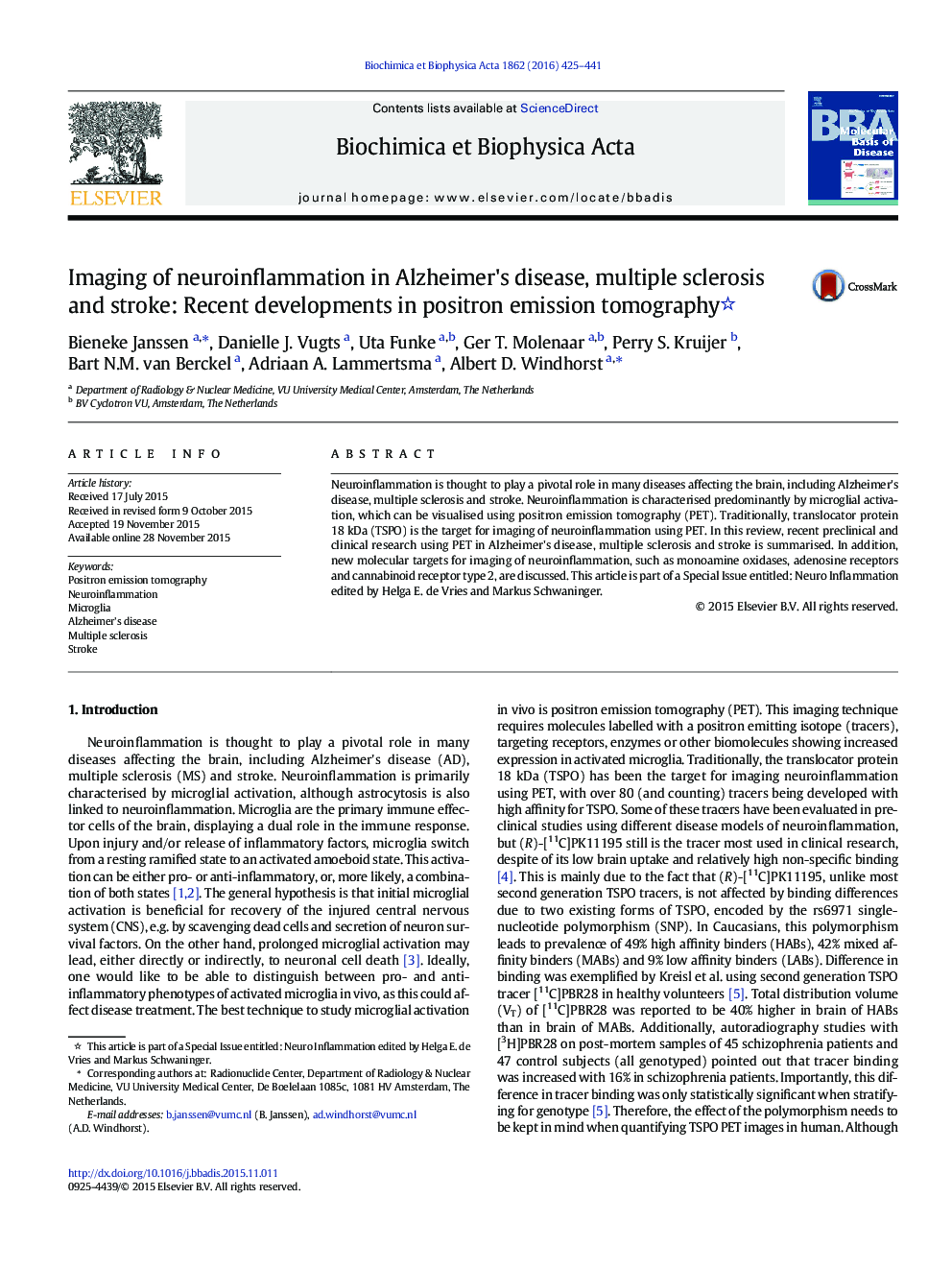| Article ID | Journal | Published Year | Pages | File Type |
|---|---|---|---|---|
| 1904528 | Biochimica et Biophysica Acta (BBA) - Molecular Basis of Disease | 2016 | 17 Pages |
•PET imaging of neuroinflammation is of high interest in AD, MS and stroke.•Recent preclinical and clinical PET research is summarised.•There is still room for improvement in tracer development for imaging of microglia.
Neuroinflammation is thought to play a pivotal role in many diseases affecting the brain, including Alzheimer's disease, multiple sclerosis and stroke. Neuroinflammation is characterised predominantly by microglial activation, which can be visualised using positron emission tomography (PET). Traditionally, translocator protein 18 kDa (TSPO) is the target for imaging of neuroinflammation using PET. In this review, recent preclinical and clinical research using PET in Alzheimer's disease, multiple sclerosis and stroke is summarised. In addition, new molecular targets for imaging of neuroinflammation, such as monoamine oxidases, adenosine receptors and cannabinoid receptor type 2, are discussed. This article is part of a Special Issue entitled: Neuro Inflammation edited by Helga E. de Vries and Markus Schwaninger.
